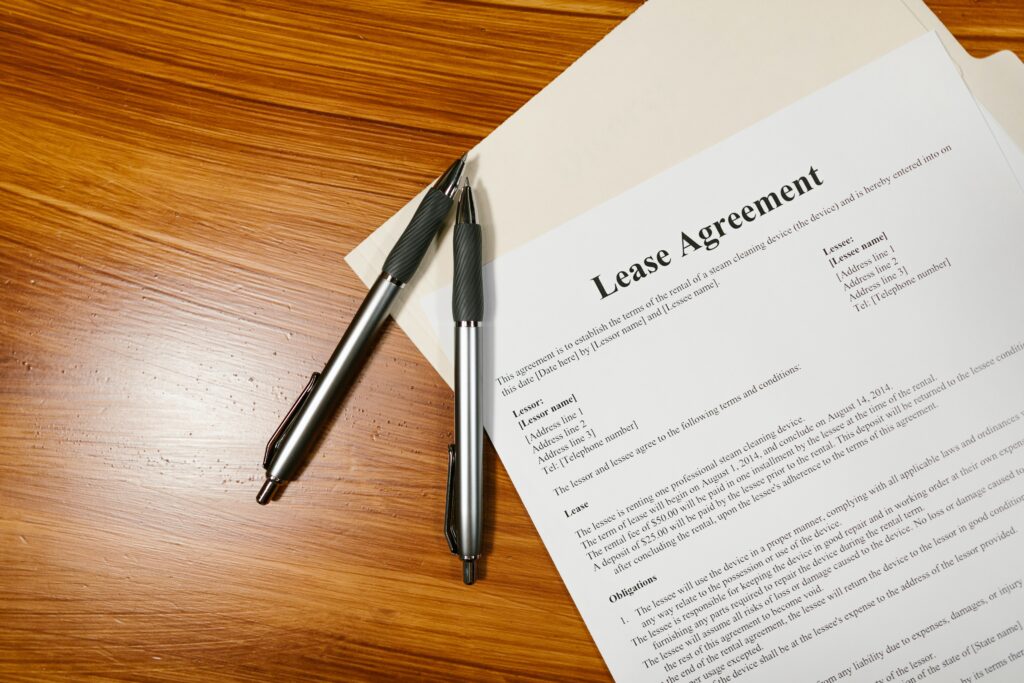Residential Leasing

Assisting Landlords and Tenants
Landlords and tenants in both Massachusetts and New Hampshire need to be aware of their rights and responsibilities when they enter into a rental agreement. It is extremely important for both landlords and tenants to memorialize their understanding in a written rental agreement, regardless of whether the tenancy is at will or for a set term.
At Zuccaro Law, LLC, we can assist in drafting or reviewing your residential lease to ensure compliance with, among other things:
- Security Deposit laws – how much, where it must be held, what to do with the interest;
- Collection of first/Last month’s rent;
- Collection of additional fees;
- Statements of Condition; and
- Illegal fees/deposits
Frequently Asked Leasing and Landlord/Tenant Questions
Although Massachusetts and New Hampshire law regarding collection of security deposits are similar, there are some important differences.
Let’s start with the similarities. Generally speaking, landlords who collect a security deposit must:
- Hold it in trust for the tenant;
- Place it in an interest bearing account;
- Provide a tenant with a receipt informing the tenant which bank the deposit is held;
- Not commingle security deposit funds with their own funds;
- Pay interest earned on the security deposit to the tenant;
- Return the security deposit to the tenant, if any remains upon damage deductions, within thirty (30) days of moving out/teminating the tenancy;
- A landlord may only use a security deposit for unpaid rent (after move out) or to repair damage.
As stated, there are important differences between Massachusetts and New Hampshire law. Some, but not all of the differences include:
- Increases to the security deposit (see “Can a Landlord Increase a Security Deposit?” below;
- The amount of the security deposit in Massachusetts is equal to the first month’s rent, whereas in New Hampshire it is equal to one month’s rent. See below for more information on increases to the security deposit.
- A violation of the security deposit laws in Massachusetts subjects a landlord to TRIPLE damages, whereas in New Hampshire it subjects a landlord to DOUBLE damages;
- In Massachusetts, a landlord is required to provide a tenant with accrued interest on their security deposit once a year. In New Hampshire, a tenant can request interest from the landlord every three years. This must be done at least 30 days before the end of the three-year anniversary of the tenancy. The landlord then has 15 days after the end of that year’s tenancy to give the tenant the interest earned on their deposit. Otherwise, the landlord is required to provide a tenant with the interest at the time the deposit is returned;
- In New Hampshire, a security deposit is considered any money paid in excess of the monthly rent – regardless of what a landlord classifies it as (cleaning fee, last month’s rent, key fee, pet fee, etc.).
In Massachusetts, no, a Landlord cannot increase a security deposit in excess of the amount of the first month’s rent. This is by statute – Massachusetts General Laws Chapter 186, Section 15B(1)(d). If a landlord wishes to increase the security deposit, this can be done by terminating the current tenancy, and creating a new tenancy with the new, increased, security deposit.
In New Hampshire, yes. Pursuant to RSA 540-A:5-8, security deposits can be equal to one month’s rent. There is no requirement that it be limited to the first month’s rent, as is the case in Massachusetts. Therefore, if a landlord increases the monthly rent, they can request the difference in the security deposit amount so that the security deposit is equal to the monthly rent.
Generally speaking, no. For both Massachusetts and New Hampshire, if a landlord proposes a rent increase, it must be agreed to by the tenant. If a tenant is a tenant-at-will and refuses to agree to the rent increase, the landlord can begin eviction proceedings by sending a 30-day notice to quit.
If there is a written lease for a particular term, such as one year, the rent cannot be increased during the tenancy period.
No.
In Massachusetts, at the time a tenant moves in, a landlord can only collect:
- First Month’s Rent;
- Last Month’s Rent;
- Security Deposit; and
- The cost of a new lock and key.
In Massachusetts, it is illegal for residential landlords to charge fees such as:
- Move in fees;
- Application fees;
- Amenity fees;
- Fees for holding deposits;
- Community fees;
- Up-front pet fees;
- Cleaning fees;
- Credit check fees.
